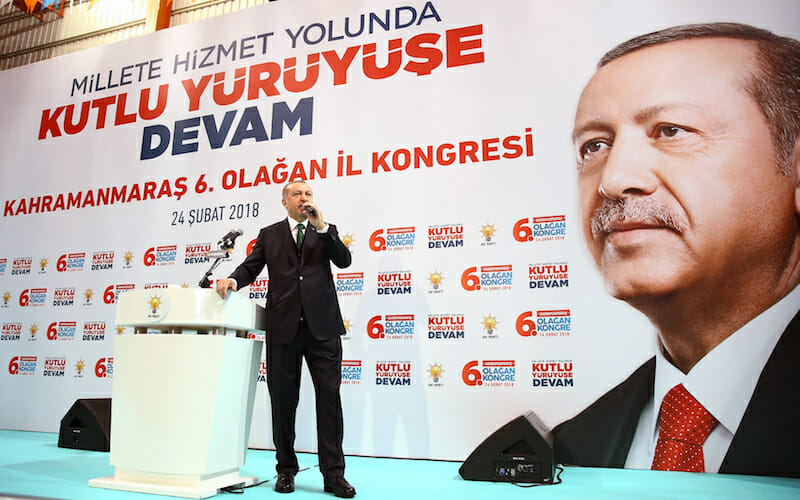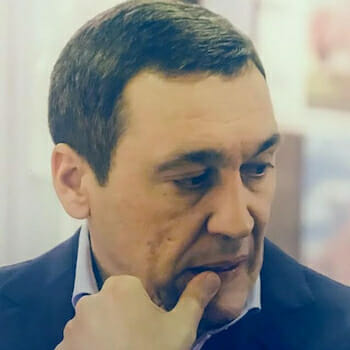
Turkey Now a No-Go Area for Journalists
In a shocking display of politically-directed prosecution, a Turkish court has sentenced six people, including three renowned journalists, to life in prison for allegedly supporting the July 2016 coup attempt against President Recep Tayyip Erdoğan.
These are “aggravated” life sentences, which basically means no parole. This marks a further milestone in Erdoğan’s ongoing purge of his critics and his war against a free press and the rule of law.
The sentences follow January’s constitutional court ruling that one of the six should be released immediately. He wasn’t.
In a brief pre-sentencing statement allowed of each defendant, the respected editor Ahmet Altan noted that he had suffered arrest and trial “hundreds of times” as a journalist in Turkey, but this was the first time his conviction itself was in contravention of the nation’s constitution. “As far as I am aware, there is no equivalent in either Ottoman or republican history.”
The charges themselves are bizarre. Ahmet Altan and his brother Mehmet were accused of using subliminal signals in a TV broadcast the day before the coup attempt.
In the 18 months since military officers attempted to replace Erdoğan, 150,000 public servants have been purged. In August, the constitutional court rejected petitions by 71,000 former civil servants seeking reinstatement.
But the impact on journalism has been pervasive. Newspapers and other media have been shut down. As of August last year, 255 journalists and other media workers were in jail, according to one estimate. The US-based Committee to Protect Journalists regards Turkey as the “world’s worst jailer of journalists,” surpassing China, Russia and Egypt.
In January, Erdoğan used an official statement observing what is called Journalists Day in Turkey to declare: “Although I have been harmed by the media from time to time throughout my political life, I have always struggled, and still do struggle, to make sure that different voices and cultures are able to freely express themselves and voice their opinions.”
But in the same month, on a visit to Paris, he termed news columnists “gardeners of terrorism.”
“These gardeners are those people viewed as thinkers,” he said, with French President Emmanuel Macron at his side. “They water…from their newspaper columns. And one day, you find, these people show up as a terrorist in front of you.”
This was in apparent response to Macron’s concerns about human rights infringements in Turkey. “Our democracies must be strong standing up to terrorism,” Macron said. “But at the same time, our democracies must completely protect the rule of law.”
For the notoriously thin-skinned Erdoğan, no criticism is too slight to escape a response, usually delivered with a writ, often with arrest and sometimes with torture.
In this instance his paranoia extends to anyone who questions his opinion that an aging preacher named Fethullah Gülen, self-exiled to a mansion in rural Pennsylvania, is out to replace the current regime with his own. Gülen and his cult-like “Hizmet” (or “Service”) movement are officially designated as terrorists in Turkey, and are accused of running a parallel government, supported by millions of members indoctrinated through hundreds of Gülenist schools. How much of this is true is a mystery because, while the Turkish authorities have demanded Gülen’s extradition by the US, they have so far failed to offer evidentiary grounds for an extradition to be granted.
What is strange though is that Gülen and Erdoğan were once allies, together pitted against Turkey’s secularists and attempting to enhance the political influence of Islam. In this, they clearly succeeded, but they then fell to squabbling when police and prosecutors thought to have been Gülenists brought a sensational anti-corruption case against senior members of Erdoğan’s circle, including members of his family.
Intriguingly, Gülen has always placed great stock in the role of journalism in political discourse. Two decades ago he encouraged the establishment of Journalists and Writers Foundation, based in New York. His movement runs newspapers and news web sites around the world. Many of the news operations shuttered in Turkey after the coup attempt were Gülenist-owned and financed.
In short, Gülen believes in the media. It follows almost logically that his great adversary Erdoğan does not. It is almost as simple as that. What is less simple is a solution. For the moment, any journalist with a capacity of independent thought should regard Turkey as off-limits — a no-go area of the world.

